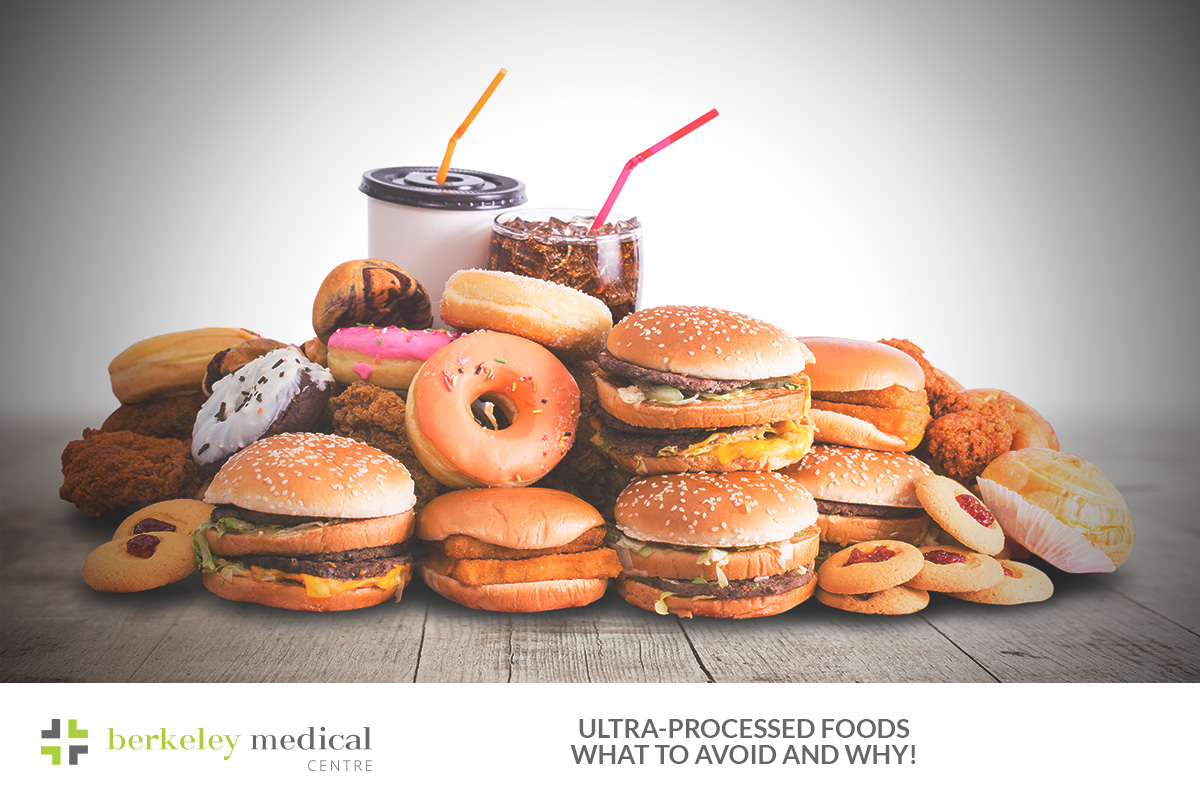Ultra-processed food have become a major part of modern diets, offering convenience but often lacking essential nutrients. Studies show that regularly consuming these highly processed foods can increase the risk of obesity, diabetes, heart disease and even cognitive decline.
If you want to improve your diet and overall well-being, it is important to understand what ultra-processed foods are, why they can be harmful and how to replace them with healthier options. This article explores the definition of ultra-processed foods, common examples and the health risks they pose.
What Are Ultra-Processed Foods?
Ultra-processed foods (UPFs) are industrially manufactured products made using refined ingredients, artificial additives and preservatives. These foods often contain little to no whole food content and undergo extensive processing to enhance flavour, texture and shelf life.
NOVA Classification System: Understanding Food Processing Levels
The NOVA classification system helps categorise foods based on their processing levels:
- Unprocessed or Minimally Processed Foods – These include whole, natural foods such as fresh fruits, vegetables, nuts, seeds, eggs, fresh meat and milk.
- Processed Culinary Ingredients – These are substances extracted from whole foods, such as olive oil, butter, sugar and salt, used for cooking.
- Processed Foods – These include foods altered by adding sugar, salt, or preservatives while still retaining some original nutrients, such as canned vegetables, cheeses and freshly baked bread.
- Ultra-Processed Foods – These heavily modified foods contain artificial ingredients, preservatives and emulsifiers, offering little nutritional value. Examples include packaged snacks, soft drinks, frozen meals and processed meats.
Common Ultra-Processed Food to Avoid
Many foods found in supermarkets and fast-food restaurants fall into the ultra-processed category. Here are some of the most common examples:
- Soft drinks, energy drinks and artificially flavoured juices
- Packaged snacks, including chips, biscuits and chocolate bars
- Instant noodles, soups and microwaveable pasta dishes
- Frozen ready-made meals, including pizzas and processed meat-based dishes
- Processed meats such as sausages, hot dogs, ham and deli meats
- Mass-produced packaged bread, pastries and cakes
- Flavoured yoghurts with added sugars and artificial sweeteners
- Margarine and processed vegetable spreads
- Meal replacement shakes and protein powders with artificial additives
- Breakfast cereals with high sugar content and preservatives
These foods often contain high amounts of sugar, unhealthy fats and artificial additives, which can negatively impact your health over time.
How It Foods Affect Your Health
Increase the Risk of Obesity and Chronic Diseases
Ultra-processed foods often contain high levels of added sugars, refined carbohydrates and unhealthy fats, contributing to obesity, high blood pressure, type 2 diabetes and heart disease. Studies show that people who eat diets rich in ultra-processed foods have a significantly higher risk of developing chronic diseases.
Contribute to Cognitive Decline and Stroke Risk
Recent research links ultra-processed food consumption to an increased risk of cognitive decline and strokes. A study found that increasing ultra-processed food intake by just 10% significantly raised the likelihood of cognitive impairment. Processed foods contribute to inflammation, insulin resistance and metabolic disorders, which can negatively impact brain function.
Lead to Over eating and Poor Nutrition
Food manufacturers design ultra-processed foods to be highly palatable, making them easy to overeat. These foods lack essential nutrients such as fiber, vitamins and minerals, which are crucial for overall health. Because they are low in fiber and protein, they do not promote satiety, leading to excessive calorie intake and weight gain.
Disrupt Gut Health
Your gut micro biome plays a key role in digestion, immune function and mental well-being. Many ultra-processed foods contain artificial additives, emulsifiers and non-nutritive sweeteners that disrupt gut bacteria. This imbalance can lead to inflammation, poor digestion and an increased risk of digestive disorders like irritable bowel syndrome (IBS).
Cause Blood Sugar Spikes and Increase Diabetes Risk
Ultra-processed foods often contain refined carbohydrates that quickly break down into simple sugars, leading to rapid spikes in blood sugar levels. Frequent blood sugar fluctuations increase the risk of insulin resistance, a major factor in developing type 2 diabetes. Artificially sweetened beverages and processed snacks have been particularly associated with a higher risk of metabolic disorders.
Increase the Risk of Neurodegenerative Diseases
Emerging research suggests that ultra-processed foods may increase the risk of neurodegenerative diseases such as Alzheimer’s and Parkinson’s. Scientists believe this is due to chronic inflammation, gut micro biome disruptions and the accumulation of harmful substances that negatively impact brain function over time.
How to Reduce Ultra-Processed Foods in Your Diet
While avoiding ultra-processed foods entirely may not be realistic, you can take steps to reduce their intake and replace them with healthier, nutrient-dense alternatives.
Choose Whole, Unprocessed Foods
Opt for fresh fruits, vegetables, whole grains and lean proteins instead of processed meals. These foods provide essential vitamins, minerals and fiber to support overall health.
Cook More Meals at Home
Preparing meals at home using fresh, natural ingredients gives you more control over what you eat. Cooking from scratch helps you avoid artificial additives and excessive amounts of sugar, salt and unhealthy fats.
Read Food Labels Carefully
Check ingredient lists and avoid products that contain preservatives, artificial sweeteners, emulsifiers and long lists of unrecognisable ingredients. The fewer the ingredients, the better.
Avoid Sugary Drinks and Processed Snacks
Replace soft drinks with water, herbal tea, or unsweetened beverages and choose healthier snacks like nuts, seeds, yoghurt and fresh fruit instead of chips or biscuits.
Opt for Natural Dairy Products
Instead of flavoured or artificially sweetened yoghurts, choose plain Greek yoghurt and add fresh fruit or honey for natural sweetness.
Plan Your Meals and Snacks
Having a meal plan makes it easier to avoid processed foods and stick to nutritious, home-cooked meals. Preparing snacks in advance helps reduce the temptation to reach for convenience foods.
The Bottom Line
Ultra-processed foods may be convenient, but their high levels of artificial additives, unhealthy fats and refined sugars pose serious health risks. Researchers have linked these foods to obesity, heart disease, diabetes, cognitive decline and gut health issues.
By making small, mindful changes such as choosing whole, nutrient-dense foods, cooking at home and avoiding artificial additives you can significantly improve your health and well-being. At Berkley Medical Centre, we prioritise your long-term health by offering guidance on nutrition, chronic disease prevention and general well-being. Our team of experienced GPs supports you in making healthier lifestyle choices, including personalised dietary advice. Take control of your health by making informed food choices and seeking professional support when needed.







